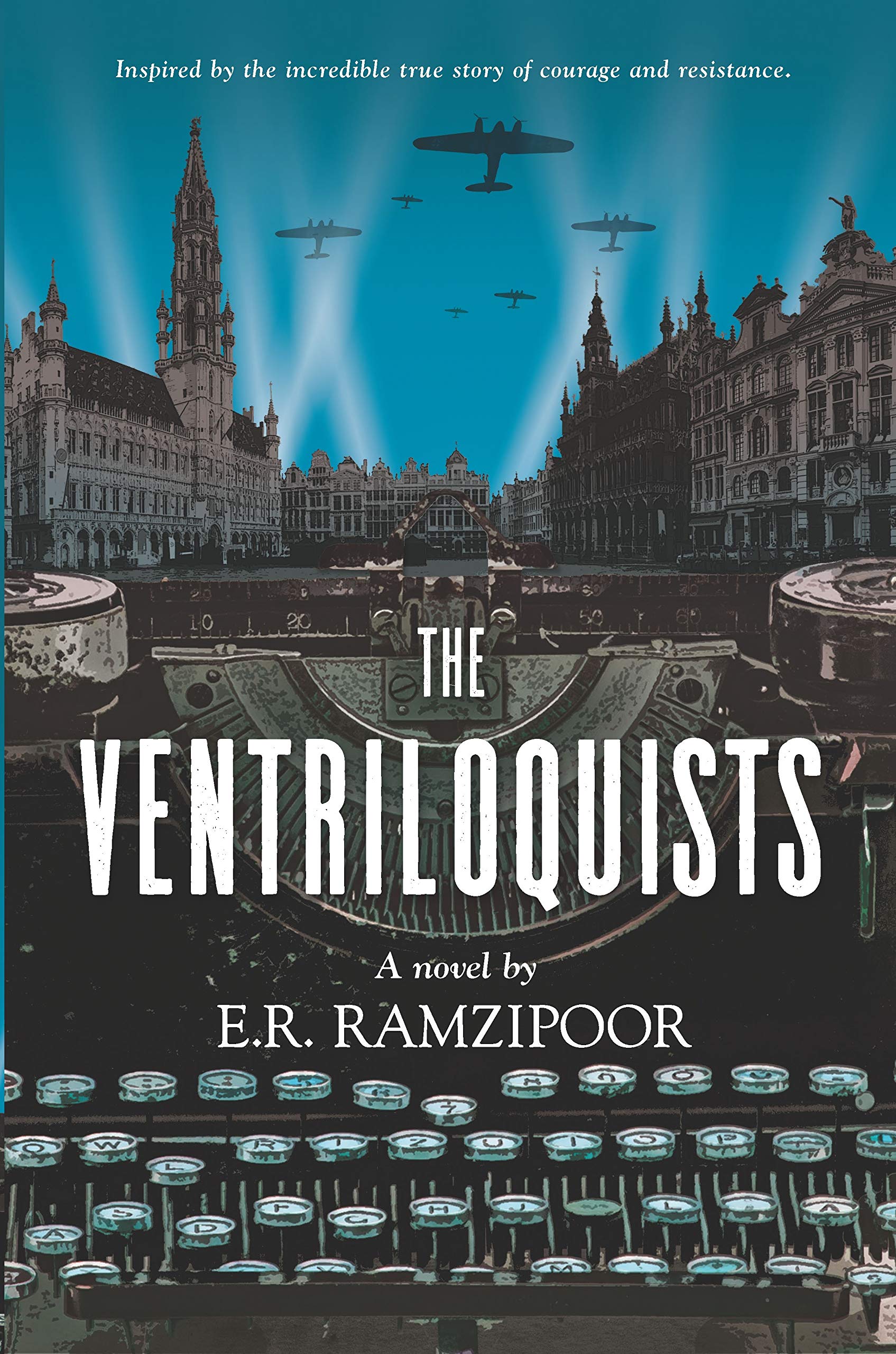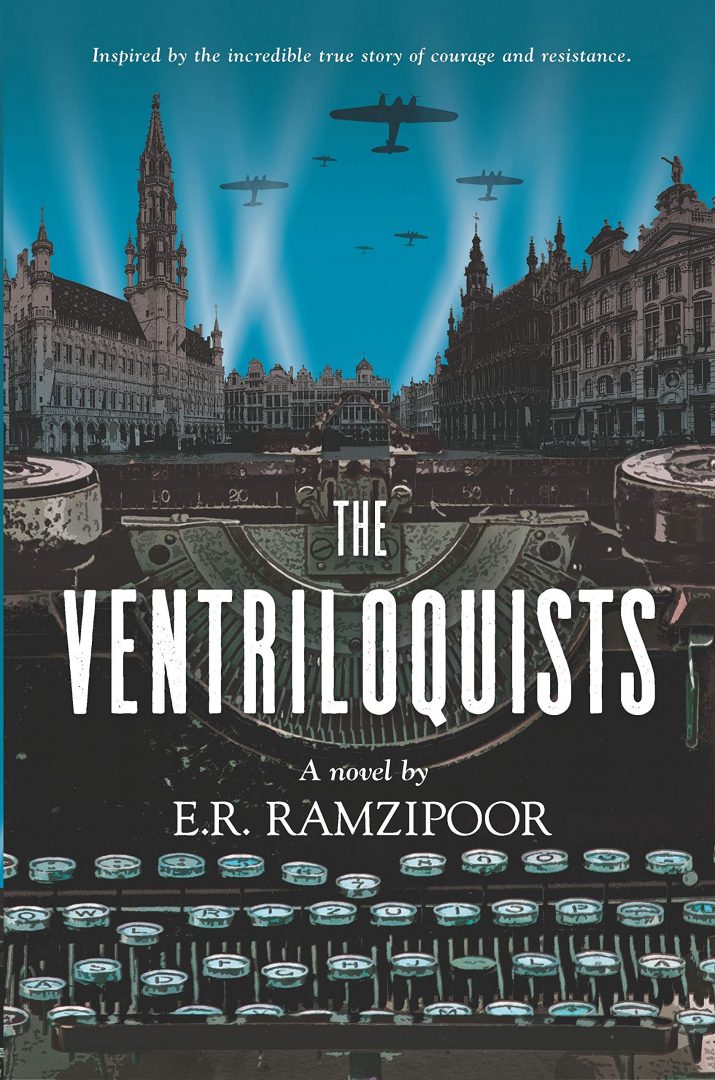‘The Ventriloquists’ by E.R. Ramzipoor

Author: Sam Segan
July 23, 2019
In E.R. Ramzipoor’s novel The Ventriloquists, a cadre of Belgian resistance journalists risk their lives to lampoon Nazi propaganda. Almost unbelievably, the story is based on a real part of history: a group of the Belgian resistance really did get together to write and distribute a false version of the Nazi-led newspaper Le Soir. Most of them lost their lives for the project. All of the text from the satirical paper reproduced in the book is authentic. Some characters are composites of or riffs on real people; some are made up from whole cloth, like the narrator, a young girl disguised as a newsboy who acts as the story’s anchor. We enter the story when we meet the newsboy, now an old woman reminiscing about her history. If all of this sounds complex, it is, but Ramzipoor juggles it deftly, helped by glittering prose, snappy pacing, and a keen sense of humor.
World War II has been so studied, so overexposed, that it’s become a very broad canvas for different artists to assay—still life, with Nazis. It’s a genre in itself, which isn’t bad: we’re left with little need to fill in the context behind what we read. Ramzipoor acknowledges the nature of her endeavor through one of her characters, the titular ventriloquist, who at one point in the delightfully twisting plot has to mimic the voices of Winston Churchill and FDR in order to goad an RAF commander into bombing their city. “His job was usually to reconstruct a voice from a whisper; now, he felt as though he was reconstructing shouts from an echo.” Ramzipoor, too, writes about one small corner of what is one of the most echoed and magnified periods in history. She benefits from the wealth of media surrounding the period she addresses. The characters’ wry, sharp dialogue and its sometimes slapstick sensibility owe much to the legacy of Charlie Chaplin and the Marx Brothers. I noticed the book’s sense of humor because it’s at odds with today’s memetic one. It’s very much of the 1940s, and it’s very funny.
The Ventriloquists also gives us something that would have been only subtext in times past: a queer relationship at the heart of the story. Better yet, it’s a relationship in which queerness doesn’t make up the central drama. Instead, the conflict in the relationship is over a question of morality in war, not the forbidden nature of gay love. Likewise, the young narrator’s crossdressing isn’t treated as an essential conflict; it only becomes one at a single point in the plot. Instead, it’s an interesting facet of a character, a sign of gender fluidity that’s realistically accepted by most others in the story. These themes do not feel forced, but instead feel like a true part of history, a part that is too often elided in fiction.
As for the plot, it’s a rollicking, twisting, turning adventure that’s almost unbelievably complicated, and hangs together on a delicate frame of multiple-point-of-view narration. There’s a gay Jewish man imprisoned and forced into collaboration with the Nazis, a marginally sympathetic Nazi partisan, and a dashingly quixotic satire-writer. There’s a smuggler/prostitute, not part of the historical record, but rather a composite of characters too often stricken from that record. There are real names from history, like the linotypists who gave their lives to print the satirical paper. And, of course, there’s the protagonist, the young girl-as-newsboy. If I had any quibble with the book, it’s that the multiple points of view take some time to coalesce. The characters don’t feel distinct until about 150 pages into the 544-page book. But that’s a minor issue, and it’s well worth your time to get past the bumpy beginning.
More than anything, I love how apt it is to write a book about the power of writing. A group of writers really did give up their lives in the service of satire, and it’s always made clear that the project is not just for the aggrandizement of the resistance. Instead, it’s meant for the Belgian people. Ramzipoor takes a moment out of the text to celebrate the heroism of ordinary people of the sort who do not often find fame, like a postal worker who smuggles yellow stars out of the post office rather than distribute them to the Jews of her town. Rampizoor’s attention to the small details missed by larger tellings of history animate the book, and it’s the light of her perspective that makes it something worth reading, which will stay with you long after you’ve put it down.
The Ventriloquists
By E.R. Ramzipoor
Park Row Books
Hardcover, 9780778308157, 544 pp.
August 2019

